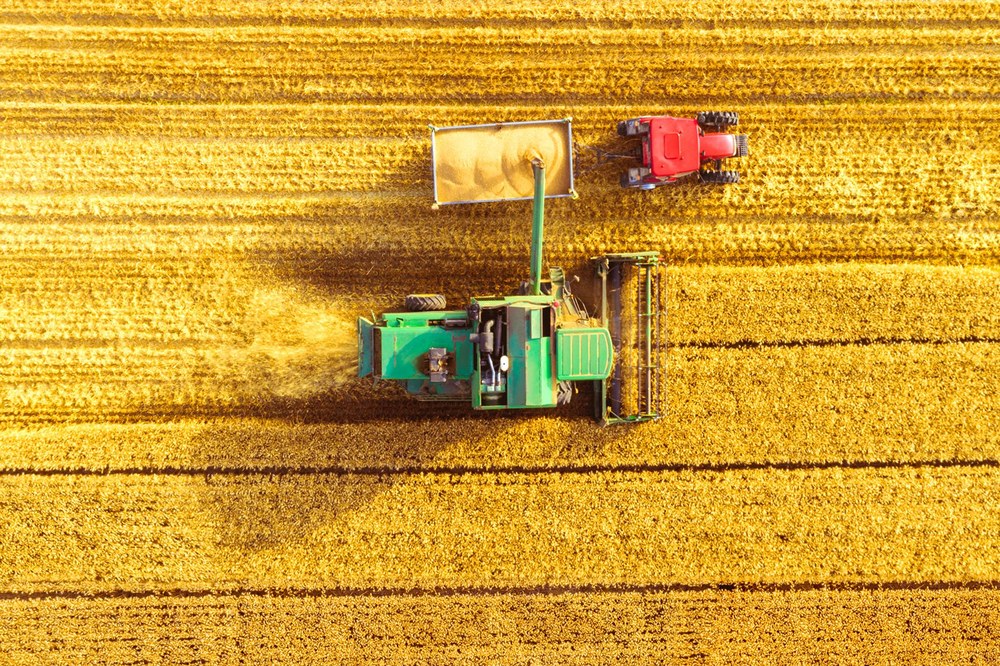Harnessing the potential for agricultural technology and systems design to ensure resilience at the landscape-level.

Issue
As collective interest in multifunctional agriculture and the need to address climate change grows, producers have become willing to embrace new production paradigms and increasingly sophisticated tools. This initiative aims to catalyze research, education, and outreach to fulfill a vision of a vibrant, technologically savvy, climate-smart, and environmentally friendly agriculture that provides diversified services. Pennsylvania’s abundant water supply and heterogenous landscape offer ample opportunities to embrace a regenerative and climate-smart agriculture that can be the linchpin of resilient and networked supply chains.
The convergence of agriculture and climate solutions
Fields are no longer considered discrete, isolated, and homogenous production units. Powered by new remote and proximal sensing systems, relational data assembly, artificial intelligence, modeling systems, and the internet of things, the field as a management unit is being reconceptualized as a collection of highly heterogenous subunits that can be tailor-managed to accomplish production and environmental goals. These systems have a largely untapped potential to store soil carbon, suppress the emission of greenhouse gases where they are emitted, capture solar radiation, and produce food with a low carbon and low pollutant intensity. Simultaneously, there is an increasing awareness and understanding that processes which ensure resilience can operate at the landscape scale. Agricultural fields alter the abiotic and biotic fabric around them, and in turn, are altered by the same fabric; these ecosystem services and disservices need to be quantified.
Researchers in this initiative aim to harness emerging opportunities to turn the table on existing challenges and create innovative solutions for a society that is increasingly willing to account for the cost and pay for the benefits of regenerative and climate-smart agriculture.
Convener
Daniela Carrijo, Ph.D.
Assistant Professor and Extension Specialist, Grain Production
Department of Plant Science
Associated Members
Associates
- Mary Ann Bruns, Associate Professor, Soil Microbiology and Biogeochemistry
- Daniela Carrijo, Assistant Professor, Plant Sciences
- Paul Esker, Assistant Professor, Epidemiology and Field Crop Pathology*
- Lara Fowler, Senior Lecturer, Penn State Law & Assistant Director IEE*
- Alexander Histrov, Distinguished Professor, Dairy Nutrition
- Margaret Hoffman, Assistant Professor, Landscape Contracting*
- Michael Jacobson, Professor, Forest Resources*
- Heather Karsten, Associate Professor of Crop Production / Ecology*
- Meetpal Kukal, Assistant Research Professor, Agricultural and Biological Engineering*
- Tom Richard, Professor Emeritus, Agricultural and Biological Engineering*
- Matthew Royer, Assistant Research Professor, Director Agriculture & Environment Center*
- Josephine Wee, Assistant Professor, Food Science*
- Guojie Wang, Assistant Professor/Extension Specialist in Forage Crop Systems, Plant Science
Affiliates
- Elizabeth Boyer, Professor, Water Resources*
- Rachel Brennan, Associate Professor, Environmental Engineering*
- Amber Cesare, STEM Education Outreach Specialist, College of Education*
- Estelle Couradeau, Assistant Professor, Soils and Environmental Microbiology*
- Kenneth Davis, Professor of Atmospheric & Climate Science*
- Francesco Di Gioia, Assistant Professor, Vegetable Crop Science*
- Francisco Dini Andreote, Assistant Professor, Phytobiomes*
- Jill Felker, Lecturer, Biochemistry & Molecular Biology
- Michael Fidanza, Professor, Horticulture*
- Erika Ganda, Assistant Professor of Food Animal Microbiomes*
- Sarah Goslee, Adjunct Associate Professor, Agronomy, USDA-ARS*
- Lauren Greenlee, Associate Professor, Chemical Engineering*
- Meetpal Kukal, Assistant Research Professor of Agricultural and Biological Engineering*
- Jill Hamilton, Assistant Professor, Director of the Schatz Center in Tree Molecular Genetics*
- Bruce Logan, Kappe Professor, Environmental Engineering*
- Carolyn Lowry, Assistant Professor*
- Marc McDill, Associate Professor, Forest Management
- Felipe Montes, Assistant Research Professor, Plant Sciences
- Robert Nicholas, Associate Research Professor*
- Claudia Schmidt, Assistant Professor, Agricultural Economics*
- Rui Shi, Assistant Professor, Chemical Engineering*
- Hong Wu, Stuckeman Career Development Assistant Professor in Design*
- Katherine Zipp, Associate Professor, Environmental & Resource Economics

